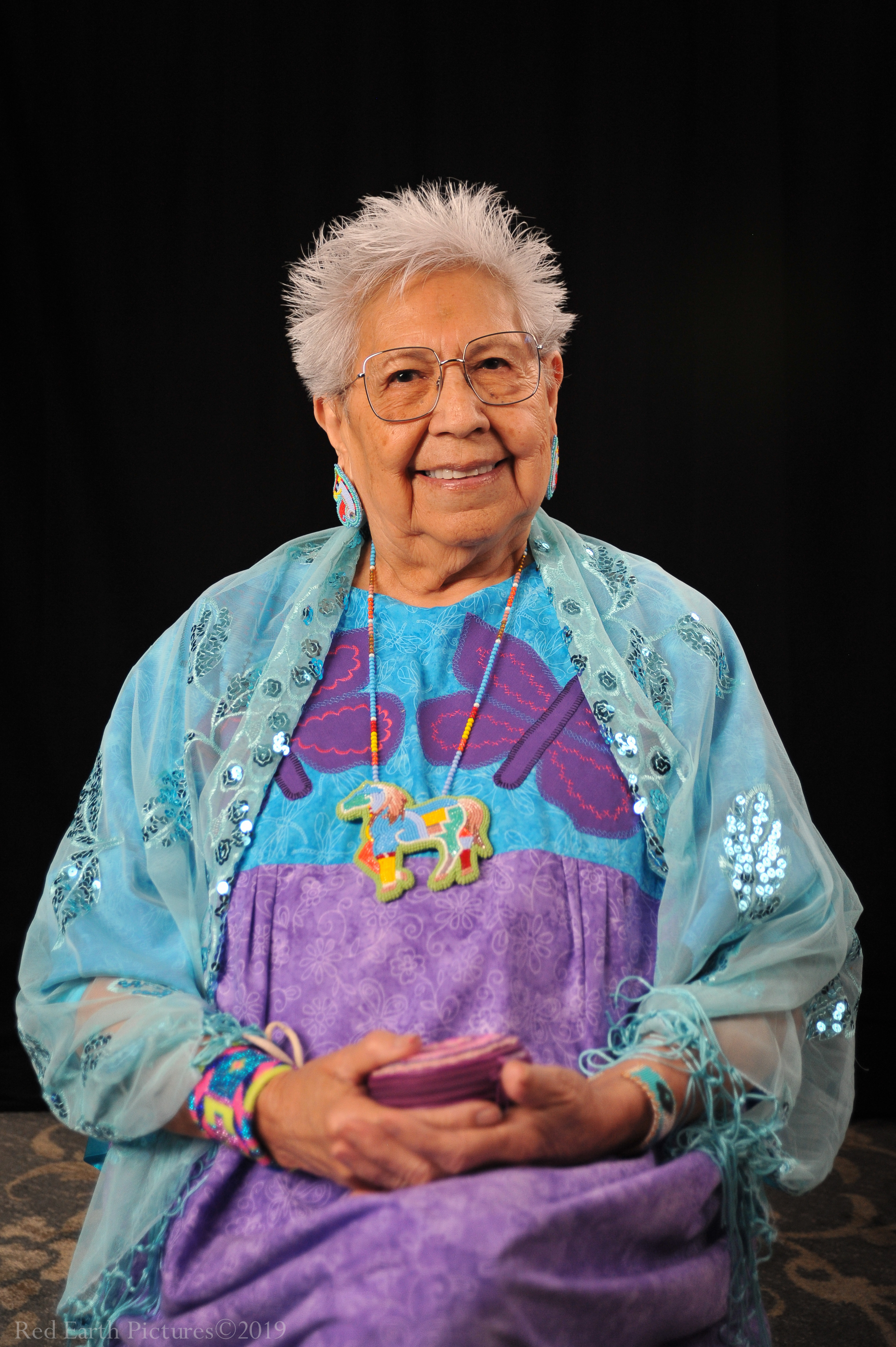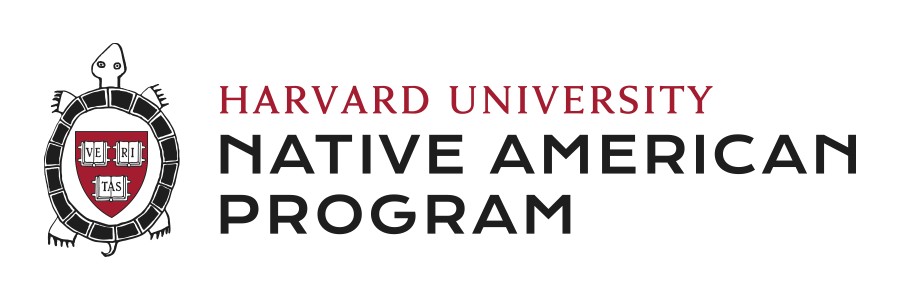A Circle of Notable Native American Scholars
Date and Time
Location
Experience a discussion with five phenomenal Indigenous scholars celebrating HUNAP's 50th anniversary.
This 50th Anniversary event is jointly sponsored by the Harvard University Native American Program (HUNAP), the Stanford Native American Studies Program and the Stanford Native American Cultural Center (NACC). Co-sponsored by the American Academy of Arts & Sciences. Access to the Daedalus Issue on Indigenous Ways of Knowing is available at: https://www.amacad.org/daedalus/unfolding-futures-indigenous-ways-knowing-twenty-first-century
A Circle of Notable Native American Scholars
Thursday, February 11, 2021
6:00 PM EST, Zoom Webinar
Featuring:
Philip J. Deloria, Yankton Dakota
Leverett Saltonstall Professor of History at Harvard University
K. Tsianina Lomawaima, Creek Nation
Professor in the School of Social Transformation at Arizona State University, and Co-founder of the Native American & Indigenous Studies Association
Henrietta Mann, Cheyenne
Professor Emerita of Native American Studies at the University of Montana, Missoula and Montana State University, Bozeman and Founding President of the Cheyenne and Arapaho Tribal College
Greg Sarris, Federated Indians of Graton Rancheria
Tribal Chairman of the Federated Indians of Graton Rancheria (Coast Miwok), and Endowed Chair in Creative Writing and Native American Studies at Sonoma State University
Robert Warrior, Osage Nation
Professor of American Literature and Culture at the University of Kansas
Video Recording
Panelists Bios
Philip J. Deloria

Philip J. Deloria is the Leverett Saltonstall Professor of History at Harvard University, where his research and teaching focus on the social, cultural and political histories of the relations among American Indian peoples and the United States. He is the author of several books, including Playing Indian (Yale University Press, 1998), Indians in Unexpected Places (University Press of Kansas, 2004), American Studies: A User’s Guide (University of California Press, 2017), with Alexander Olson, and Becoming Mary
Sully: Toward an American Indian Abstract (University of Washington Press, 2019), as well as two co-edited books and numerous articles and chapters. Deloria received the Ph.D. in American Studies from Yale University in 1994, taught at the University of Colorado, and then, from 2001 to 2017, at the University of Michigan, before joining the faculty at Harvard in January 2018. Deloria is a trustee of the Smithsonian Institution’s National Museum of the American Indian, where he chairs the Repatriation Committee. He is former president of the American Studies Association, an elected member of the American Academy of Arts and Sciences, the recipient of numerous prizes and recognitions, and will serve as president of the Organization of American Historians in 2022.
K. Tsianina Lomawaima

K. Tsianina Lomawaima (Mvskoke / Creek Nation, not enrolled) is Distinguished Scholar of Indigenous Education, Center for Indian Education, and Professor, School of Social Transformation, Arizona State University. Her research and teaching interests include the status of Native people as U.S. citizens and Native nations as Indigenous sovereigns, the role of Native nations in shaping U.S. federalism, American Indian policy history, Indigenous knowledge systems, and the history of American Indian education. She is a member of the American Academy of Arts & Sciences and the National Academy of Education, a fellow of the American Educational Research Association (AERA), and co-founder of the Native American & Indigenous Studies Association/NAISA.
Her scholarship on the federal off-reservation boarding school system is rooted in the experiences of her father, Curtis Thorpe Carr, a survivor of Chilocco Indian Agricultural School in Oklahoma, where he was enrolled from 1927 to 1935. Her books include“To Remain an Indian”: Lessons for democracy from a century of Native American education (2006; Outstanding Book Award, American Educational Research Association); Uneven ground: American Indian sovereignty and federal law (2001; with David E. Wilkins); Away from home: American Indian boarding school experiences (2000; with Margaret Archuleta and Brenda Child); and They called it Prairie Light: The story of Chilocco Indian School (1994; North American Indian Prose Award, American Educational Association Critics’ Choice Award). She has co-edited special issues of Daedalus, the Journal of American Indian Education, and Anthropology & Education Quarterly, and published in History of Education Quarterly, American Indian Quarterly, American Educational Research Journal, Harvard Educational Review, and American Ethnologist.
Henrietta Mann, Ho’e-oesta-oo-nah’e, “Prayer Cloth Woman”

Dr. Henrietta Mann, Tsetsehestaestse (Cheyenne) was Director/Professor of Native American Studies at the University of Montana, Missoula for some 28 years. In 2000 she became the first individual to occupy the Katz Endowed Chair in Native American Studies at Montana State University, Bozeman where she is Professor Emerita, and was Special Assistant to the President from 2003-2016. She is the founding President of the Cheyenne and Arapaho Tribal College.
In 1991, Rolling Stone Magazine named Dr. Mann as one of the ten leading professors in the nation. In 2008 she received the Lifetime Achievement Award from the National Indian Education Association. The College Board, Native American Student Advocacy Institute (NASAI) presented her with its first Lifetime Achievement Award in 2013, and has since created the Dr. Henrietta Mann Leadership Award to acknowledge and thank leaders for their advocacy in improving lives within native communities. In 2014 MONEY Magazine named her a MONEY Hero Award Winner, one of 50 Unsung Heroes/50 States, conferred for her extraordinary work with the Cheyenne and Arapaho Tribal College in improving the financial well-being of others.
In 2016 she became one of two Native Americans ever to be elected to the National Academy of Education. Indian Country Today has included her in its 2016 “50 Faces of Indian Country.” In 2017 she received a SPIRIT ALIGNED Legacy Leader Award as a carrier of indigenous community values, memory and wisdom from the Spirit Aligned Leadership Program, based in Akwesasne, New York, which partners with NoVo Foundation and Rockefeller Philanthropy Advisors. In 2018 she was elected to membership in the American Academy of Arts & Sciences. Dr. Mann continues to serve on boards at the national and international levels, and has served as Elder-in-Residence at Fort Lewis College, Durango, Colorado, and the University of North Carolina, Chapel Hill.
Greg Sarris

Greg Sarris received his Ph.D. in Modern Thought and Literature from Stanford University, where he was awarded the Walter Gore Award for excellence in teaching. He has published several books, including the widely anthologized collection of essays, Keeping Slug Woman Alive: A Holistic Approach to American Indian Texts, and Grand Avenue, an award-winning collection of short stories, which he adapted for an HBO miniseries of the same name and co-executive produced with Robert Redford. His last novel, Watermelon Nights, received rave reviews and was adapted for a play by the Santa Rosa Community College Theatre Arts Department. Greg has written plays for Pieces of the Quilt, Intersection Theatre, and the Mark Taper Forum. His play, entitled Mission Indians, opened at the Intersection Theatre in San Francisco, February 2002, and received the 2003 Bay Area Theatre Critics Award for Best Script. He co-produced, advised, and was featured in a sixteen-part series on American literature for Public Television called American Passages, which won the prestigious Hugo Award for Best Documentary in 2003. He has written two pilot scripts for Showtime and one for HBO. He edited a book (with Connie Jacobs and James Giles) for MLA, Teaching the Work of Louise Erdrich (2004). Greg has “doctored” many scripts and worked with the Sundance Institute, where he helped develop a summer writing lab for American Indians interested in film writing. In spring 2008, Word for Word Theatre performed two of his new short stories in over 80 schools in the San Francisco Bay Area. He has completed a collection of short stories as well as a collection of children’s stories and is currently finishing a new novel. He is serving his fourteenth consecutive term as Chairman of his tribe, the Federated Indians of Graton Rancheria, formerly known as the Federated Coast Miwok, and he co-authored a bill on behalf of the tribe, H.R. 5528. On December 27, 2000, President Clinton signed this bill restoring the Federated Coast Miwok as a recognized American Indian tribe, making the Federated Indians of Graton Rancheria the last tribe in the United States to be restored by an Act of Congress. On October 1, 2010, Greg successfully regained a reservation for his people after the Tribe had been homeless for over 50 years. In July 2013, he raised money to build a resort and casino for his tribe, and today, five years after opening, the casino resort is among the 5 most successful Indian casinos in the nation. In addition to serving as Chairman of his Tribe, he serves as President of the Tribe’s Development Board, overseeing all of the Tribe’s business interests, including the Graton Resort and Casino. Formerly a full professor of English at UCLA, and then the Fletcher Jones Professor of Creative Writing and Literature at Loyola Marymount University, Greg now lives in Sonoma County and holds the position of the Federated Indians of Graton Rancheria Endowed Chair of Sonoma State University, where he teaches a number of courses in Creative Writing, American Literature, and American Indian Literature. A new book, a collection of children’s stories entitled How a Mountain Was Made was published in 2017 and was recently awarded a Bronze Medal from Independent Publisher Book Awards. Currently, he is executive producing the documentary bio on Joan Baez, and he has been appointed to the Board of Trustees for the Smithsonian National Museum of the American Indian, the Native American Advisory Council for University of California by University of California President Michael Drake, elected to the American Academy of Arts and Sciences, and recent recipient of the Lifetime Achievement Award from Heyday Books.
Robert Warrior

Robert Warrior is Hall Distinguished Professor of American Literature and Culture at the University of Kansas and a member/citizen of the Osage Nation. He is the author of Tribal Secrets: Recovering American Indian Intellectual Traditions (University of Minnesota Press, 1995) and The People and the Word: Reading Native Nonfiction (University of Minnesota Press, 2006), and coauthor of Like a Hurricane: The Indian Movement from Alcatraz to Wounded Knee (New Press, 1996), American Indian Literary Nationalism (University of New Mexico Press, 2008), and Reasoning Together: the Native Critics Collective (University of Oklahoma Press, 2009). He is past president of the American Studies Association and was the founding president of the Native American and Indigenous Studies Association (2009-10). Before moving to the University of Kansas, he taught at Stanford, the University of Oklahoma, and the University of Illinois. In 2018, he was elected to the American Academy of Arts and Sciences.


